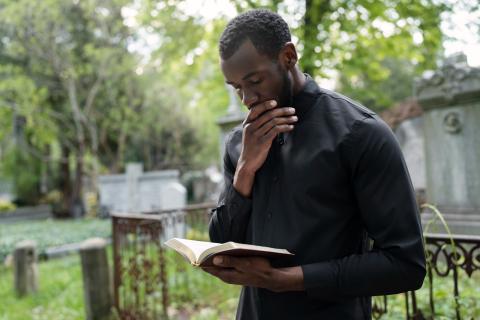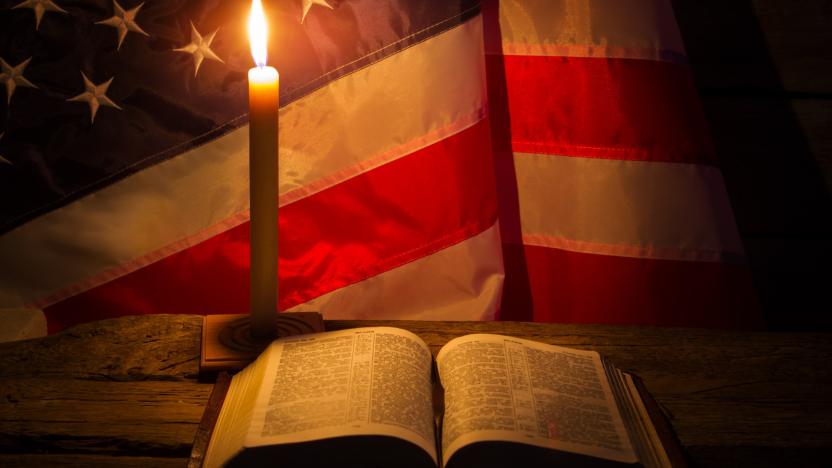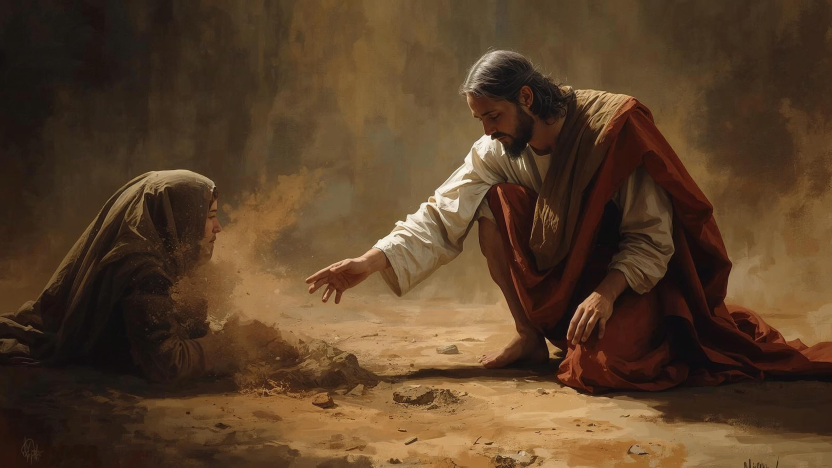“Then I saw another angel ascending from the east, having the seal of the living God…saying, ‘Do not harm the earth, the sea, or the trees till we have sealed the servants of our God on their foreheads.’”
Revelation 7:2-3
As an attorney, I often have to use documents that contain a seal, such as a notary seal or the seal of the court. Seals are placed on legal documents to demonstrate the document is genuine. If a document does not contain a seal, the clerk will reject it because there is no way to know if the document is authentic. A seal is not just a random picture or string of letters but conveys important information. Most seals communicate three specific facts: name, title, and territory. For example, a notary seal contains:
- The name of the notary.
- Their title as a notary public.
- The territory (e.g., County of Los Angeles, State of California).
We can understand the use of seals in the context of buying a home. Let’s imagine you purchased a home. When the prior owners signed the deed over to you, they did so in front of a notary who placed the state’s notary seal on the document. That deed was then recorded in the county recorder’s office. Without the notary seal, the deed would have been rejected. This process helps prevent fraudulent transfers of real property.

A seal is an outward sign or mark that testifies to the authenticity of something. It does not make something authentic but confirms that it is authentic. In the example above, the deed is authentic when the homeowner signs the deed. A notary witnesses the signing and places the seal on the deed as an outward sign to all that this is an authentic deed. When the deed is taken to the county for recording, the recorder sees the seal on the document and knows the deed is authentic.
God had a seal for His people under the old covenant, which served as an outward sign that they were His people. Talking about Abraham, Paul states, “and he received the sign of circumcision, a seal of the righteousness of the faith [emphasis added] which he had while still uncircumcised ….” (Romans 4:11). For Abraham and his descendants, circumcision was a sign or seal that they were righteous through faith. Abraham was righteous by the faith in his heart even before he was circumcised. Circumcision was merely the outward sign of that inward righteousness that he already had. Circumcision did not make him righteous.
Spiritual Israel also has a seal, an outward sign that shows who in this world are God’s authentic servants. But this seal is not circumcision. (See Acts 15). The Bible tells us about this seal in Revelation 7:2-3. It states: “Then I saw another angel ascending from the east, having the seal of the living God…saying, ‘Do not harm the earth, the sea, or the trees till we have sealed the servants of our God [emphasis added] on their foreheads.’” Revelation goes on to say that the number of those sealed is 144,000 and that they are “redeemed from the earth.” (See Revelation 7:4 & 14:3).

All who desire to be a servant of God, all who long to be redeemed from this sin-plagued world, and all who want to be part of the 144,000 should ask with earnest desire, “What is the seal of God?”
The answer can be found in the Bible. Paul tells us that the new covenant is God’s law written on His people’s hearts and minds. Hebrews 8:10 states: “For this is the covenant that I will make with the house of Israel after those days, says the LORD: I will put My laws in their mind and write them on their hearts; and I will be their God, and they shall be My people.”
God’s new covenant people have His law written on their minds, evidencing that His people know God’s law and choose to obey it. Their mind is made up; they will obey God at all costs. But it isn’t just written on the mind; it is also written on His people’s hearts. This evidences that His people obey the law because they love God and because they love His law. As David wrote, “I will delight myself in Your commandments, Which I love” (Psalm 119:47). Jesus stated, “If you love me, keep my commandments” (John 14:15, 21).

When we have God’s law in our hearts and minds, we are authentically God’s people. The Holy Spirit, like a notary, seals God’s people (Ephesians 1:13). “Bind up the testimony, Seal the law among my disciples” (Isaiah. 8:16).
With the law of God in our hearts and minds, what is the outward sign, or seal, that evidences that we are authentic? The Bible states that the seal of God, or outward sign, is our observance of the seventh-day Sabbath. “Surely My Sabbaths you shall keep, for it is a sign between Me and you throughout your generations, that you may know that I am the Lord who sanctifies you” (Exodus 31:13).
Ezekiel 20:20 states, “Hallow My Sabbaths, and they will be a sign between Me and you, that you may know that I am the Lord your God [emphasis added].”

When people see you keeping the Sabbath, it is an outward sign that the Lord is your God. However, keeping the Sabbath does not make you authentic, just like a notary seal does not make a deed authentic but merely confirms that it is authentic.
In Bible times, when a new law or decree was passed, the king would place his seal on the law (Esther 3:12; Daniel 6:17). The seal would state the name of the king, his title as king or emperor, and his territory (e.g. Persia or Babylon). God also placed His seal right in the middle of his law, the Ten Commandments. The Fourth Commandment states:
“Remember the Sabbath day, to keep it holy. Six days you shall labor and do all your work, but the seventh day is the Sabbath of the Lord your God. In it you shall do no work: you, nor your son, nor your daughter, nor your male servant, nor your female servant, nor your cattle, nor your stranger who is within your gates. For in six days the Lord made the heavens and the earth, the sea, and all that is in them, and rested the seventh day. Therefore the Lord blessed the Sabbath day and hallowed it” (Exodus 20:8-11).

What is fascinating is that the fourth commandment is the only commandment that communicates all three facts of a seal: name, title, and territory.
- NAME: “The Lord your God.”
- TITLE: Creator—the one who made everything.
- TERRITORY: “The heavens and the earth, the sea, and all that is in them.”
A person could keep all the other nine commandments and worship any god. For example, if someone worshiped the Greek mythological god Zeus, that person could have no other gods before Zeus, he could not make any idols, he could not take Zeus’ name in vain, and he could keep all the last six commandments. However, such a person could not keep the fourth commandment and worship Zeus because Zeus is not the Creator of heaven and earth.
In earth’s darkest hour, when all are forced to worship the beast and his image upon pain of death, God’s saints will “keep the commandments of God and the faith of Jesus” (Revelation 14:12). Their worship on the Sabbath will be the seal, the outward sign to all the world that the Creator’s law is written on their hearts and minds and that the Lord is their God and they are His people.
Call to Action
God wants you to have His seal. Will you keep His Sabbath holy as a sign that He is your God?

Scripture taken from the New King James Version®. Copyright © 1982 by Thomas Nelson. Used by permission. All rights reserved.




